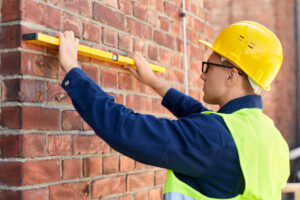If you have a keen eye for detail, a passion for homes, and a desire to help others make informed decisions, a career as a home inspector in Florida may be an excellent fit for you. Home inspectors play a vital role in the real estate industry, ensuring residential properties’ safety, quality, and compliance.

This article will guide you through becoming a home inspector in the Sunshine State, outlining the necessary steps, qualifications, and resources to embark on this rewarding profession.
Step 1: Understand the Role of a Home Inspector
Before diving into the journey of becoming a home inspector, it is essential to comprehend the responsibilities and duties associated with the role. Home inspectors evaluate the condition of residential properties, identifying any structural issues, safety hazards, or code violations. They inspect various systems within a home, including electrical, plumbing, HVAC, roofing, and more, to provide clients with a comprehensive report on the property’s condition.
Step 2: Meet the State Requirements
In Florida, home inspectors are regulated by the Department of Business and Professional Regulation (DBPR). To become a licensed home inspector, you must fulfill the following requirements:
- Education: Complete a minimum of 120 hours of approved pre-licensing education from a state-approved provider. These courses cover essential topics such as building systems, codes, inspection methods, and report writing.
- Experience: Gain practical experience by completing a minimum of 14 supervised inspections under the guidance of a licensed home inspector. This hands-on training will provide invaluable insights and enhance your skills in evaluating properties.
Step 3: Prepare for the Exam
Once you have met the education and experience prerequisites, the next step is to prepare for the home inspector examination. The exam is administered by a third-party vendor approved by the DBPR. It consists of both a national portion and a state-specific portion. To succeed in the exam, consider the following:
- Study Materials: Obtain study materials, including textbooks, reference guides, and online resources, to thoroughly understand the subject matter. These materials will help you review building codes, inspection techniques, and other relevant information.
- Practice Tests: Take advantage of practice exams available online to familiarize yourself with the format and content of the actual test. This will help you identify areas of strength and areas that require further study.

Step 4: Take the Licensing Exam
Once you feel adequately prepared, schedule your home inspector licensing exam. The examination is typically computer-based and may require you to visit an approved testing center. Remember to bring the necessary identification and arrive early to alleviate any potential stress.
Step 5: Obtain Insurance and Form a Business Entity
Upon passing the exam, you must protect yourself and your clients by obtaining liability insurance. Home inspectors often face the risk of errors and omissions, and having insurance coverage safeguards against potential claims. Additionally, consider forming a business entity, such as a limited liability company (LLC), to establish a professional and legal framework for your home inspection services.
Step 6: Join Professional Organizations
To stay up-to-date with industry trends, networking opportunities, and continuing education, consider joining professional organizations such as the American Society of Home Inspectors (ASHI) or the International Association of Certified Home Inspectors (InterNACHI). These associations offer valuable resources, training programs, and certification options that can enhance your credibility as a home inspector.
Step 7: Continuing Education and Professional Development
As a home inspector, it is essential to remain current with industry standards and best practices. Florida requires licensed home inspectors to complete 14 hours of continuing education every two years to maintain their licenses. These courses offer valuable insights into emerging technologies, updated building codes, and advanced inspection techniques.
Learn more at Wiki as well.